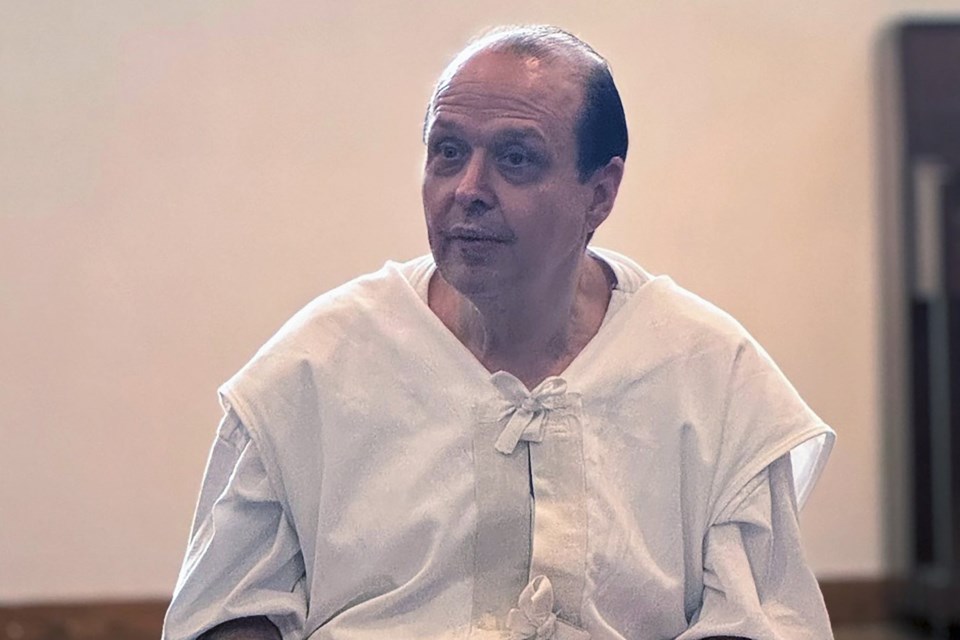HOUSTON (AP) — A Texas man who this week could be the first person in the U.S. executed for a murder conviction tied to the diagnosis of shaken baby syndrome awaited a decision Wednesday on his request for clemency from a state board.
The Texas Board of Pardons and Paroles' decision on whether to recommend that Robert Roberson’s execution on Thursday be stopped either through a commutation of his sentence or a reprieve was expected to come on the same day that a Texas House committee was set to meet in Austin to discuss his case.
“We’re going to shine a light on this case for all 31 million Texans to hear and to watch and to see. And we’re hopeful that by Thursday evening, we’re able to secure that pause button in this case,” said state Rep. Jeff Leach, one of the members of the Texas House Criminal Jurisprudence Committee that will meet on Wednesday.
Leach, a Republican, is part of a bipartisan group of more than 80 state lawmakers who have asked the parole board and Gov. Greg Abbott to stop the execution.
Roberson, 57, is scheduled to receive a lethal injection for the 2002 killing of his 2-year-old daughter, Nikki Curtis, in the East Texas city of Palestine. Roberson has long proclaimed his innocence.
Abbott can only grant clemency after receiving a recommendation from the parole board. Under Texas law, Abbott has the power to grant a one-time 30-day reprieve without a recommendation from the board.
In his nearly 10 years as governor, Abbott has halted only one imminent execution, in 2018 when he spared the life of Thomas Whitaker.
The parole board has recommended clemency in a death row case only six times since the state resumed executions in 1982.
Roberson’s lawyers, the Texas lawmakers, medical experts and others say his conviction was based on faulty and now outdated scientific evidence related to shaken baby syndrome. The diagnosis refers to a serious brain injury caused when a child’s head is hurt through shaking or some other violent impact, like being slammed against a wall or thrown on the floor.
Roberson’s supporters don’t deny that head and other injuries from child abuse are real. But they say doctors misdiagnosed Curtis’ injuries as being related to shaken baby syndrome and that new evidence has shown the girl died not from abuse but from complications related to severe pneumonia.
The American Academy of Pediatrics, other medical organizations and prosecutors say the diagnosis is valid and that doctors look at all possible things, including any illnesses, when determining if injuries are attributable to shaken baby syndrome.
The Anderson County District Attorney’s Office, which prosecuted Roberson, has said in court documents that after a 2022 hearing to consider the new evidence in the case, a judge rejected the theories that pneumonia and other diseases caused Curtis’ death.
On Tuesday, an East Texas judge denied requests by Roberson’s attorneys to stop his lethal injection by vacating the execution warrant and recusing the judge who had issued the warrant.
___
Follow Juan A. Lozano: https://twitter.com/juanlozano70
Juan A. Lozano, The Associated Press


